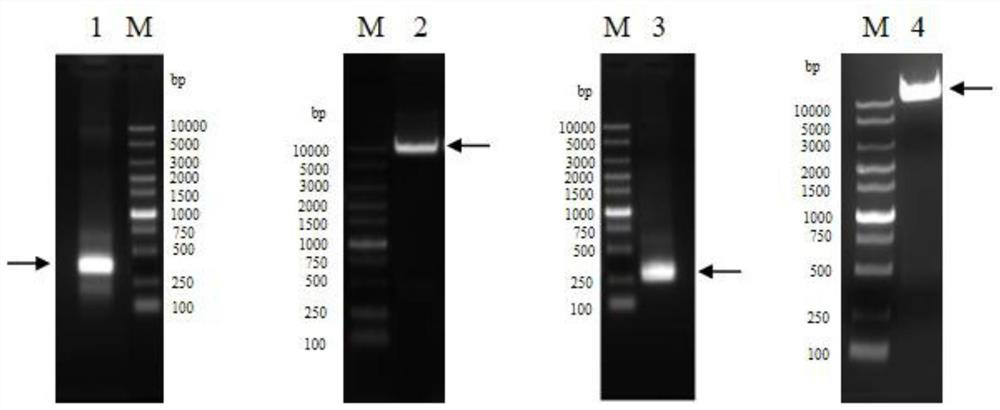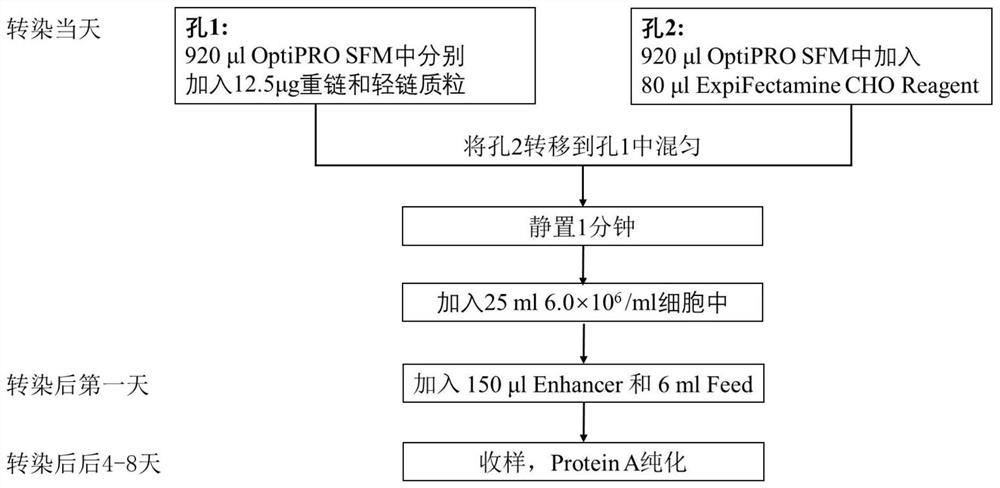A kind of anti-human tslp monoclonal antibody and application thereof
A monoclonal antibody and thymus technology, applied in the direction of antibody, anti-animal/human immunoglobulin, anti-cytokine/lymphokine/interferon immunoglobulin, etc., can solve incurable asthma, atopic dermatitis and allergy Sexual rhinitis and other problems, to achieve good clinical results
- Summary
- Abstract
- Description
- Claims
- Application Information
AI Technical Summary
Problems solved by technology
Method used
Image
Examples
Embodiment 1
[0082] Embodiment 1 Preparation of anti-human TSLP monoclonal antibody QX008N
[0083] Purchasing human thymic stromal lymphopoietin (hTSLP) from Shanghai Nearshore Technology Co., Ltd. for immunization of New Zealand rabbits, using B cell cloning technology to obtain antigen-binding specific antibody clones, and then screening for binding to human TSLP and having human TSLP inhibitory activity of monoclonal antibodies. The cell supernatant was detected by Binding ELISA and Blocking ELISA, and the target clone was selected. The above immunization and screening processes are entrusted to commercial companies.
[0084]Seven clones were selected for recombinant expression and sequenced. It has been determined that 8G2 has the best cell neutralizing activity. Therefore, the 8G2 clone was humanized. Use NCBI IgBlast to carry out homology comparison of human IgG germline sequence (Germline), select IGHV3-66*01 as the heavy chain CDR transplantation template, and clone the CDR re...
Embodiment 2
[0089] Embodiment 2 Equilibrium dissociation constant (K D ) determination
[0090] The affinity between QX008N(HZD8G2-57) and human TSLP was detected by Biacore T200, and all processes were carried out at 25°C. A commercial ProteinA chip was used to immobilize an appropriate amount of antibody by the capture method, so that the Rmax was around 50RU, and the capture flow rate was 10 μl / min. The antigen was serially diluted, the flow rate of the instrument was switched to 30 μl / min, and the concentration flowed through the reference channel and the channel of the immobilized antibody in order of concentration from low to high, and the buffer was used as a negative control. After each association and dissociation, the chip was regenerated with pH 1.5 glycine. Use the analysis software that comes with the instrument to select the 1:1 binding model in the Kinetics option for fitting, and calculate the binding rate constant k of the antibody a , the dissociation rate constant k ...
Embodiment 3
[0095] Example 3QX008N and Tezepelumab neutralize human TSLP-induced SW756-STAT5-Luciferase reporter cell STAT5 phosphorylation activity
[0096] The SW756-STAT5-Luciferase reporter gene cell line was used to measure QX008N antagonizing the phosphorylation activity of intracellular signal molecule STAT5 mediated by human TSLP through TSLPR-IL-7R: the cells in the culture medium were divided into 4×10 cells per well 4 Cells were added to 96 wells and then incubated at 37°C and 5% CO 2 conditions overnight. Add the pre-incubated antibody and human TSLP mixture to the cells, where the final concentration of QX008N ranges from 0 to 50 ng / ml, the final concentration of Tezepelumab ranges from 0 to 400 ng / ml, and the final concentration of TSLP is 0.5 ng / ml. Then at 37 °C and 5% CO 2 Cultivate under conditions for 24 hours, discard the cell culture supernatant, add 120 μl ONE-Glo-Luciferase Reagent detection reagent to each well, and act for 30 minutes, take 100 μl from each well ...
PUM
 Login to View More
Login to View More Abstract
Description
Claims
Application Information
 Login to View More
Login to View More - R&D
- Intellectual Property
- Life Sciences
- Materials
- Tech Scout
- Unparalleled Data Quality
- Higher Quality Content
- 60% Fewer Hallucinations
Browse by: Latest US Patents, China's latest patents, Technical Efficacy Thesaurus, Application Domain, Technology Topic, Popular Technical Reports.
© 2025 PatSnap. All rights reserved.Legal|Privacy policy|Modern Slavery Act Transparency Statement|Sitemap|About US| Contact US: help@patsnap.com



